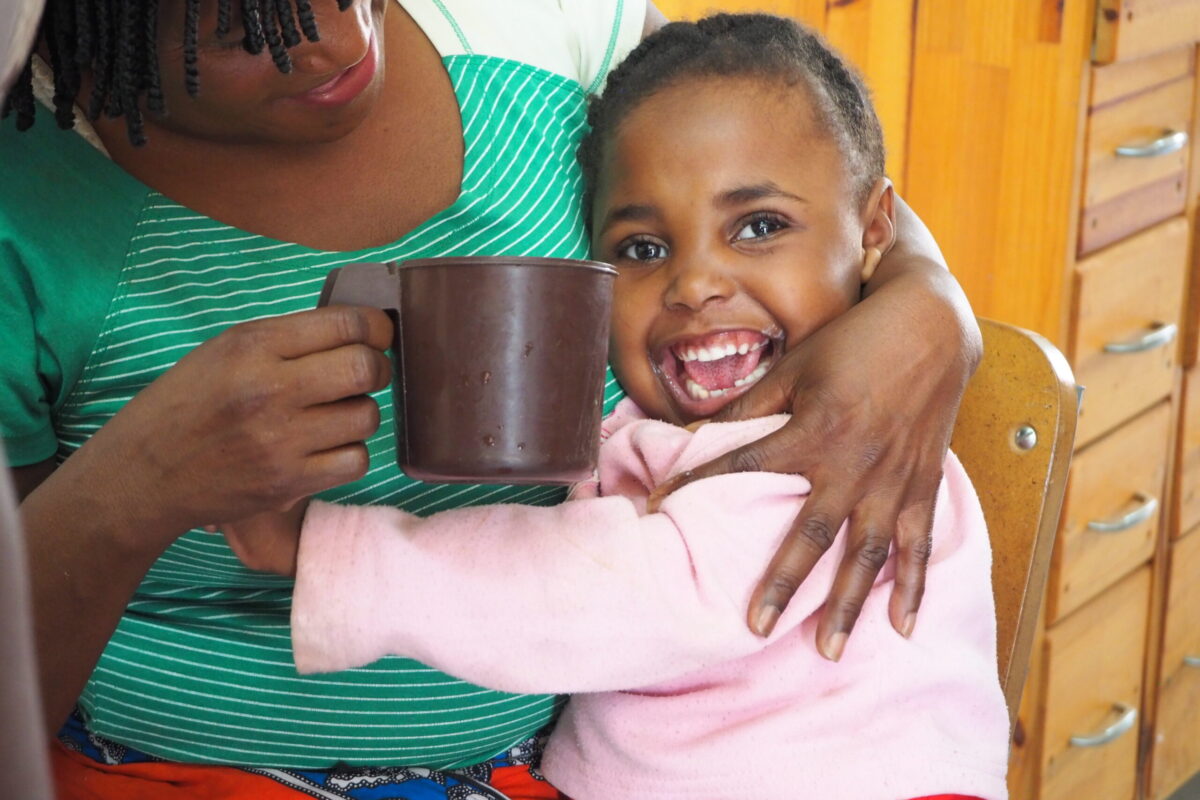A journal article from SPOON and our partners provides new insights on rates of malnutrition among children in residential care institutions in Zambia.
Global research shows that for children, living in a residential care institution rather than a family is associated with poor growth and development. In other words, children need the individualized, responsive care of a family to grow and thrive. However, there is little research on the specific nutrition status of children in residential care. In Zambia and in many other countries, more detailed information was needed to inform efforts to ensure family care for all children.
Since 2018, SPOON and Access to Health Zambia have been working to address the nutrition and feeding needs of children with disabilities and children without family care in Zambia. This study is a result of that work. Together, we reviewed program data from Count Me In, SPOON’s digital health app, and interviewed staff at select residential care institutions, covering nearly 400 children from birth to age 10 in 22 institutions.
The study found high rates of malnutrition and feeding difficulties among children in residential care institutions in Zambia. Nearly one quarter were underweight, over a quarter were stunted, 7% were wasted, and over half had anemia. Around 30% of children were at risk of feeding difficulties. Children under 2 years old and children with disabilities or special healthcare needs, particularly children with cerebral palsy, were at increased risk. Feeding practices at residential care facilities were mixed; all sites practiced some, but not all, recommended practices.
“The data collected by SPOON with their partners in Zambia highlighted that children in or entering residential care are at extreme risk for undernutrition. There needs to be a greater investment in staff training and resources so the appropriate nutritional support can be provided to all children. Future research will help determine which investments will provide the greatest impact.” – Dr. Doug Taren, co-author and SPOON board member
This study contributed to filling a gap in nutrition data in Zambia, and demonstrated that existing national estimates of undernutrition do not necessarily capture the needs of children living in residential care. It also makes it clear that nutrition is a critical component of care reform efforts, including deinstitutionalization and support for families of children with disabilities and feeding difficulties.
The article, entitled The nutritional and feeding status of children living in selected residential child care facilities in Zambia: implications for programs and policies, was published in Frontiers in Global Health and developed by authors from SPOON, Access to Health Zambia, and the University of Colorado School of Medicine.


